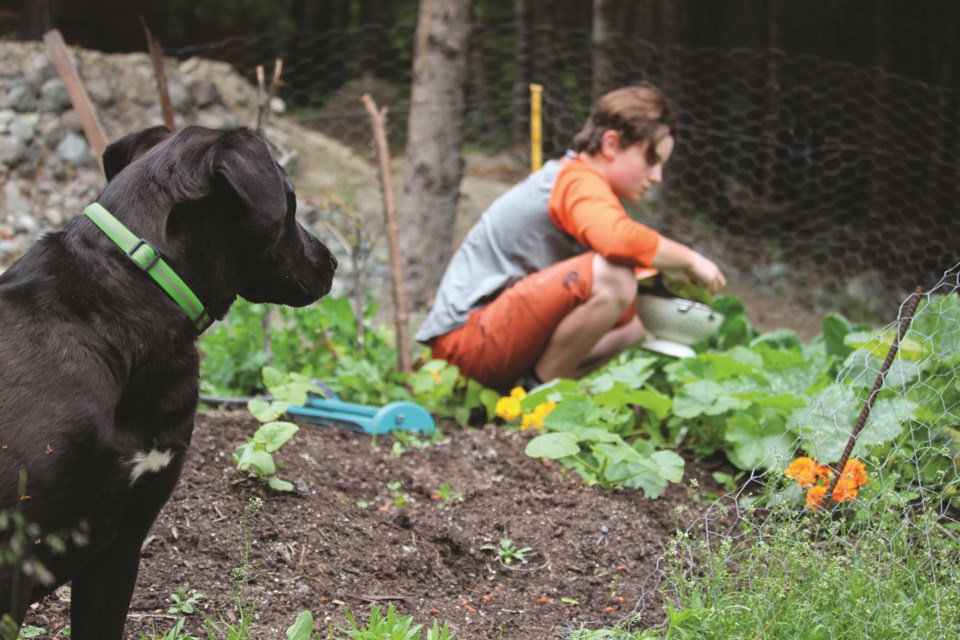If ever we thought we’d make our way to a radically better world, this has to be it, and it’s going to be young people who lead us there.
From students defending democracy in Hong Kong to the brilliant young leaders pushing for action to protect our climate, there’s no limit to how our smart young citizens can improve our world when they’re fuelled by the power of imagination and conviction.
Here in the Sea to Sky, you can count among them young Sam Tierney, who just finished Grade 7 at Signal Hill Elementary School in Pemberton. In his goal to tackle food waste as a way to tackle climate change, Sam wrote such an eloquent Letter to the Editor in Pique, that I had to give him a call. (See “Flatten the curve of food waste” in the May 21 issue.)
Like so many other young people, turns out Sam’s been more than worried about climate change.
“The whole reason I started this whole climate change thing was because for a long time it was really stressing me out and overwhelming me,” he says by phone from the beautiful acreage near Mount Currie where he lives with his mom and dad, Erin and Ian Tierney, and their veggie- and cheese-loving dog, Blaze. Sam was so worried last winter, he couldn’t even fall asleep at night.
But taking action was the key. It made him feel better, and drove his family “to go mostly vegetarian.” Then Sam figured he could maybe tackle climate change by getting the recycling improved at his school. He made a presentation to his classroom, and so many hands of future volunteers shot up, it felt even better. His Letter to the Editor was just one more step.
“I am a person who has a very large conscience and recently have become very concerned about climate change,” it starts. He goes on to explain why he’d been working to help improve the school’s recycling system but then, with the unexpected shutdown due to COVID-19, how he had to figure out “other ways I can make a difference.” (That’s another thing you gotta love about young people—they’re so flexible and creative, they quickly bounce to a new strategy.)
Sam is also the student leader of the WE Club at Signal Hill, part of WE Charity’s initiatives—the not-for-profit organization started in 1995 by Canadian, Craig Kielburger (who at the time was also 12 years old) and his brother, Marc, to empower youth and improve life in developing countries. WE Day events normally attract thousands of young participants around the world, but this year’s WE Day in Vancouver, like most, was cancelled due to COVID-19.
Until the lockdown hit, the Signal Hill WE Club’s first project was going to be Sam’s idea of improving the school’s recycling system. To that end, he was going to make a video about it. But when that got disrupted, their teacher, Ms. Jazic, suggested he watch an award-winning documentary, Just Eat It: A Food Waste Story, which highlights the adventures of a Vancouver couple who were so concerned about food waste that they decided to live on nothing but food “rescued” from dumpsters and retail castoffs for six months. That included perfectly edible chocolate (Sam’s favourite), a dumpster of President’s Choice hummus, and oodles of Cuddy homestyle hams—all trashed because it wasn’t perfect enough for grocery retailing.
“What I saw was shocking,” Sam writes. “I learned that globally, about one-third of the food produced is wasted, normally due to tiny cosmetic imperfections or misinterpreted best-before dates. In Canada, the number is even bigger, coming in at roughly 40 per cent.
“… Of the food waste in Canada, about 63 per cent could actually have been eaten.”
The pandemic, with all its ensuing disruptions in the supply chain—including our own personal shopping disruptions, like hoarding or over-buying and then wasting the stuff we bought too much of—is only making things worse. Just ask some of the Pemberton Valley farmers who’ve had to compost tons of beautiful fresh produce because of delays in opening the Whistler Farmers’ Market this summer. (Fingers crossed it will be up and running 11 a.m., this Sunday.)
But what I really like about Sam is that he doesn’t just point out problems. He describes solutions and offers practical ideas for making things better.
He learned that Nesters Market either composts what would otherwise be food waste, or gives it to the food bank. Pemberton Valley Supermarket bundles up usable, but not perfect, produce that’s still fine to eat and sells it for only 99 cents; things that aren’t suitable for us go into scrap bags farmers can have for their chickens or cows for a $2-donation to the food bank. Sea to Sky Soils near Pemberton does a great job of turning food waste from local grocery stores and restaurants into rich soil and compost, some of which ends up back in the Tierneys’ garden, enhancing their own personal composting efforts.
As for our own food habits, Sam urges us to stop cherry-picking those cherries and other fresh produce. Take home those little orphans with a small bruise or ding that otherwise will end up in the garbage. Plan meals ahead of time, and don’t neglect your leftovers just because you don’t “feel like” eating them.
And don’t forget to eat your vegetables. They’re not only good for you, they definitely cut down on greenhouse gas emissions and the amount of food and land we give over to livestock.
But you know all that. Now just do it. And stand by for Sam’s next big idea.
Glenda Bartosh is an award-winning journalist who has total hope for the future every time she meets a smart, caring young person.




